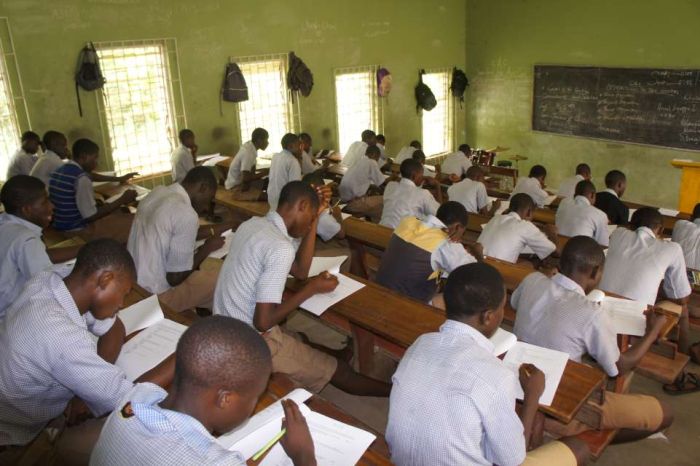Educating the children of Nigeria

Education has become one of the basic pillars for living a high quality and successful life. It is very important that today everyone in our society receives the proper education required. Even though primary education is free and compulsory, about 10 million of the children in Nigeria aged 6-14 are not going to school.
Many factors can explain reasons why Nigeria has this issue. Factors such as gender, economical and financial instability play a big role in the issue. Nigeria’s education deprivation is due to economic barriers and the practices and cultural beliefs that oppose girls to take up formal education.
Many children don’t receive basic education, like literacy and numeracy, but instead get religious education. Muslims living in Nigeria receive the Quran education and the government officially considers these children who receive only religious education out-of-school.
Even the kids who get the education in Nigeria do not get the proper facilities and resources needed to have a good educational life in Nigeria. In the southern part of Nigeria, it is reported that about 802 schools remain closed, 497 classes are destroyed or not well maintained with another list of 1,900 classes destroyed but repaired.
To address the problem, ActionAid Nigeria and the European Union (EU) started a ‘Send My Friend to School’ campaign, to increase the school enrolment rate of Nigerian children. Speaking during the campaign at the Government Secondary School, Kuje in the Federal Capital Territory (FCT), the Education Programme Officer of ActionAid Nigeria, Osamudiamen Owens-Ibie, said: “The programme is a three year, multi country project designed with a focus on getting more children in school through young advocates speaking up for their right to education and engagement with policy makers at the community level through to the national level.
Girls in Nigeria have had the most problems when asking for going to school in Nigeria because of early marriage and gender discrimination. People still live in the traditional biased thinking that a female will soon get married and take care of her husband and children as a housewife so they think that the girl won’t need education as she will be a housewife. Girls are discriminated based on their gender both in their communities and in schools. Their achievements are not considered as significant as the boys’ achievements are. Women’s history is not taught at schools. Less attention is paid to educating girls on the topics of their bodies and their health.
Another solution was later introduced in Nigeria which was the UNICEF organization which aims to target the children who are less likely to receive education due to different reasons. The expected outcome of this programme is that all children gain access to education and lifelong learning. This organization really helped Nigeria and improved its education rate and ensured that the children get education and that of the best quality.
The campaign introduced by ActionAid and UNICEF really helped improve the quality of education in Nigeria. Through these solutions every child in the country of Nigeria can receive the quality of education it deserves. Educating young children is really good as they are the ones who are going to lead the generation to future accomplishments and the discovery and inventions of new things. These new things will teach the next generation of kids how to survive in the world. It is really necessary that every child in the world receives education because they deserve it.
Cover photo from NaijaLoaded.
This piece by Emaan Mawani was produced as part of UpStudio Africa‘s Journalism Workshop with Inaara Gangji in December 2020.


